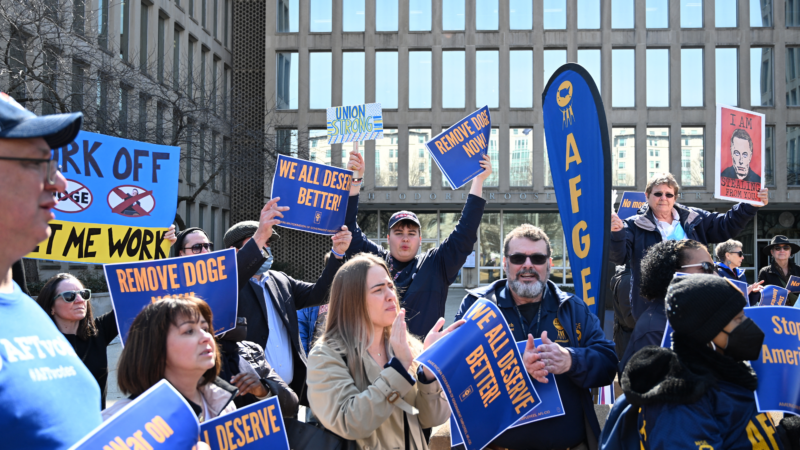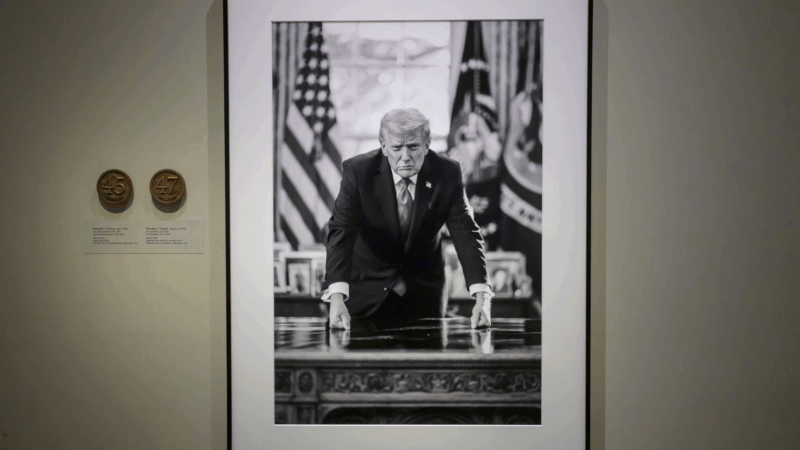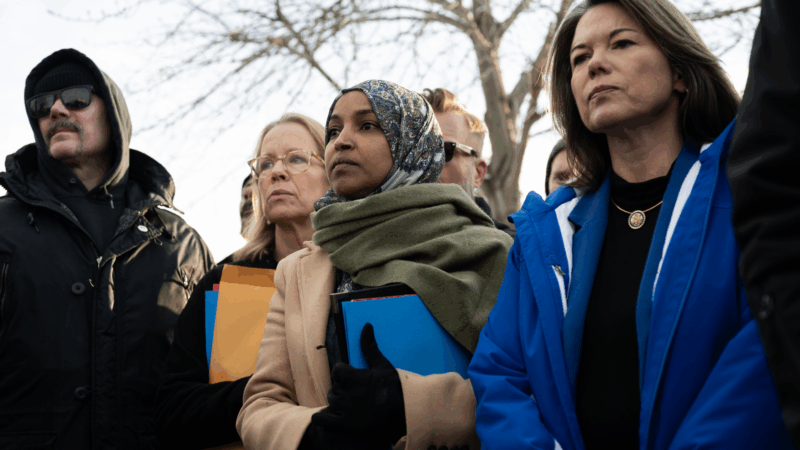Trump signs order ending union bargaining rights for wide swaths of federal employees
President Trump has signed an executive order ending collective bargaining for wide swaths of federal employees, as part of his broader campaign to reshape the U.S. government’s workforce. The largest federal employee union says the order affects over 1 million workers.
In a fact sheet, the White House says the Civil Service Reform Act of 1978 (CSRA) gives him the authority to halt collective bargaining at agencies with national security missions.
This provision has traditionally applied to certain employees at agencies such as the CIA, the FBI or the National Security Agency.
But Trump’s order, signed late Thursday, is more far-reaching, and includes employees whose jobs touch on national defense, border security, foreign relations, energy security, pandemic preparedness, the economy, public safety and cybersecurity.
It notably excludes law enforcement. “Police and firefighters will continue to collectively bargain,” the White House fact sheet states.
Unions are roundly condemning the move.
“This administration’s latest executive order is union busting, pure and simple,” said Irma Westmoreland, a registered nurse at a veterans hospital in Augusta, Ga., who spoke in her capacity as chair of Veterans Affairs for National Nurses United.
The union represents nurses caring for patients’ physical and mental health at veterans facilities around the country.
“We need to feel free as unionized nurses to speak up about patient safety issues,” said Westmoreland. “Veterans deserve nurses who are free to advocate for their care without fear of discipline or losing our jobs.”
Trump had previously issued executive actions eroding employee rights under union contracts. For example, one directive sought to invalidate collectively bargained telework provisions, declaring that they were in conflict with management rights. He’s also taken aim at the amount of time employees serving in union leadership positions could spend on collective bargaining and other union-related business.
The administration had also already ended collective bargaining rights for Transportation Security Administration officers who run airport checkpoints.
The executive order signed Thursday night covers all or some unionized employees at around 20 agencies, including the departments of Agriculture, Veterans Affairs, Health and Human Services, State, Justice, Energy, Interior, Treasury, Defense and others.
Unions point out that the CSRA granted federal workers collective bargaining rights in order to provide them a way to address workplace issues without disrupting government operations.
“Labor organizations and collective bargaining in the civil service are in the public interest,” the CSRA states.
In its fact sheet, the White House made clear it thought unions were standing in its way.
“Certain Federal unions have declared war on President Trump’s agenda,” the fact sheet states. “The CSRA enables hostile Federal unions to obstruct agency management.”
Federal employee unions have sued the Trump administration to block a number of its actions, including the mass firings of probationary employees, the dismantling of USAID and access to sensitive data.
Unions have also pushed back on the administration’s return-to-office demands, citing provisions in their contracts allowing for some telework, and were prepared to bargain over procedures related to upcoming reductions-in-force as their contracts allowed.
Now, labor leaders are calling Trump’s new executive order a “retaliatory attack.”
“President Trump’s latest executive order is a disgraceful and retaliatory attack on the rights of hundreds of thousands of patriotic American civil servants—nearly one-third of whom are veterans — simply because they are members of a union that stands up to his harmful policies,” wrote Everett Kelley, president of the American Federation of Government Employees, in a statement.
AFGE, which represents 800,000 civil servants, has vowed “immediate” legal action to fight it.
“AFGE isn’t going anywhere,” wrote Kelley. “Our members have bravely served this nation, often putting themselves in harm’s way, and they deserve far better than this blatant attempt at political punishment.”
Have information you want to share about ongoing changes across the federal government? NPR’s Andrea Hsu can be contacted through encrypted communications on Signal at andreahsu.08.
National Portrait Gallery removes impeachment references next to Trump photo
A new portrait of President Trump is on display at the National Portrait Gallery's "America's Presidents" exhibition. Text accompanying the portrait removes references to Trump's impeachments.
America’s top figure skaters dazzled St. Louis. I left with a new love for the sport.
The U.S. Figure Skating National Championships brought the who's who of the sport to St. Louis. St. Louis Public Radio Visuals Editor Brian Munoz left a new fan of the Olympic sport.
DHS restricts congressional visits to ICE facilities in Minneapolis with new policy
A memo from Homeland Security Secretary Kristi Noem, obtained by NPR, instructs her staff that visits should be requested at least seven days in advance.
Historic upset in English soccer’s FA Cup as Macclesfield beat holders Crystal Palace
The result marks the first time in 117 years that a side from outside the major national leagues has eliminated the reigning FA Cup holders.
Sunday Puzzle: Pet theory
NPR's Sacha Pfeiffer plays the puzzle with KAMW listener Daniel Abramson of Albuquerque, N.M, and Weekend Edition Puzzlemaster Will Shortz.
Venezuela’s exiles in Chile caught between hope and uncertainty
Initial joy among Venezuela's diaspora in Chile has given way to caution, as questions grow over what Maduro's capture means for the country — and for those who fled it.








